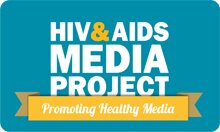Post-Exposure Prophylaxis (PEP)
Post-exposure prophylaxis (PEP) is when an HIV-negative person is given ARVs after they might have been exposed to HIV. PEP can prevent HIV from taking root in a person’s system.
PEP must be taken within 72 hours of possible HIV exposure in order to be effective.
PEP courses are similar to ART regimens, with patients taking a combination of ARVs. A course of PEP lasts for 28 days.
It is vital that people taking PEP take the medication as instructed or, like HIV-positive people on ART, they could develop drug resistance. The side effects of PEP can also be severe.
 In SA free PEP treatment is given to people who might be exposed to HIV through their jobs-for example doctors or nurses in needle stick accidents-and rape survivors.
In SA free PEP treatment is given to people who might be exposed to HIV through their jobs-for example doctors or nurses in needle stick accidents-and rape survivors.
Last updated: 21 September 2011






